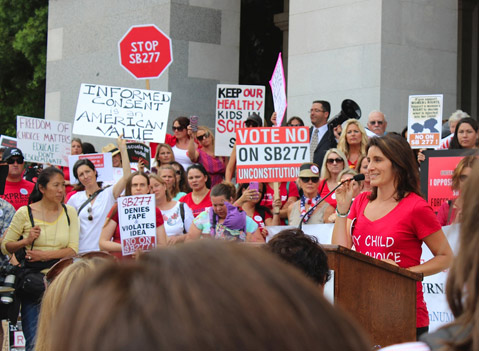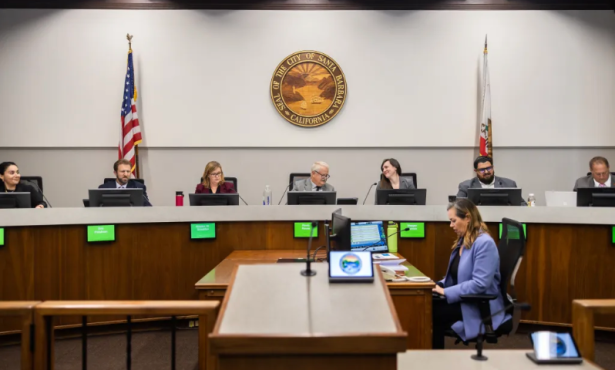How Will Strict New Vaccine Bill Affect S.B. Schools?
Supporters and Skeptics Weigh In

Governor Jerry Brown wasted little time signing into law SB 277, the state bill that reverses a 1961 law allowing parents to file a personal-belief exemption with the school nurse’s office in lieu of fully vaccinating their child.
In practical terms, the law does not go into effect until next school year, when public or private school children must prove they have gotten all doses of the 14 shots on the market — or provide a doctor’s note exempting them for medical reasons. The mandate kicks in as students enter kindergarten or the 7th grade, or transfer schools. Each year, the law is expected to impact about 13,000 students across the state. In Santa Barbara County, 372 kindergarteners out of 6,641 did not have all the required shots in fall 2014.
But causing public-health officials concern this year, pockets across the county — typically afflent ones — have some of the highest exemption rates in the state. For instance, 30 percent of kindergarteners at Waldorf School in Santa Barbara and 15 percent of kindergarteners at Santa Barbara Charter School and Coastline Christian Academy filed such forms last fall. At Montecito Union, 20.8 percent of kindergarteners opted out of the recommended shots, about 7 percent lower than the previous year.
A state law that went into effect on the first day of 2014 required parents to consult doctors before submitting an exemption form and likely contributed to drops at some schools. “For us, this law will help us push over the line,” said Montecito Union superintendent Tammy Murphy, noting her school nurse went through every personal-belief exemption form to send letters home for kids who were partially immunized. On the flip side, Franklin, Harding, and Adams elementary schools, as well as schools in Santa Maria, have extremely low personal-belief-exemption rates.
Statewide, about 10 percent of kindergarteners are not fully vaccinated. In recent months, a small minority vocally opposed SB 277, contending it inhibits choice and violates a child’s access to public education. “The whole movement is very well educated and well spoken,” said Brandy Vaughan, a single mom who has a 4-year-old son she planned to send to Waldorf School this fall. “[We] are not going to just acquiesce.” Anti-vaxxers around the state angry about the bill’s passage have threatened lawsuits.
Vaughan is a former pharmaceutical sales rep turned anti-vaxxer. As a fresh UCSB grad in the early 2000s, Vaughan sold Vioxx, a painkiller manufactured by Merck that was taken off the market in 2004 after evidence showed it posed a serious heart risk. The company paid nearly $1 billion and pleaded guilty to criminal charges over the marketing of the drug.
“The way that the data can be manipulated on the safety of a drug — that was really eye opening,” she said. This background prompted Vaughan to found the Council for Vaccine Safety, a 400-member nonprofit that hosts events to discuss the risks associated with vaccines. Vaughan acknowledged her group’s small size and added that very few parents chose not to vaccinate their child entirely. Many, she said, chose to selectively delay getting the doses.
Last week, Assemblymember Das Williams abstained from voting on the bill, citing the absence of an alternative schedule in the legislative language as one reason. He said the bill “had too much momentum” and did not provide flexibility for people with doubts about vaccines. State Senator Hannah-Beth Jackson, on the other hand, has been a strong supporter and coauthored the measure, standing next to Senator Richard Pan, a Democrat and pediatrician who sponsored the bill, when it was introduced in February after the Disneyland measles outbreak affected 117 people nationwide.
Exactly what the law will mean for small, independent schools remains to be seen. “My school will close,” said Tracy Roberts, who runs an alternative home day care in Los Olivos. Of her 12 students, just one is fully vaccinated. She surmised anti-vaxxers — often highly educated parents who won’t “just comply” — will homeschool or leave the state. Roberts took exception to the fact a child fully vaccinated except against hepatitis B — sexually transmitted or by needles — would be prohibited from going to school under the new law.



